|
Many years ago, the Matador Network sent me on assignment with two filmmakers to Panama and Costa Rica. We were
searching for young Americans who dared to dream of an adventurous life abroad, and more importantly, dared to act. The goal was to produce a series of profiles that would inspire others to 'break free' ...but like so many other projects with big hopes and dreams, this one never took off. We did however create a cool demo that I love revisiting from time to time, and met some some inspiring people. I captured their stories in writing, although it has never been published. Today, bottled in by the pandemic, I find myself thinking of these personal journeys, and how anything once seemed possible. It still is. I'm delighted to share these stories this month, maybe it will inspire you too. Part ONE: Breaking Free to Save Yourself Dyllan Bocas del Toro, Panama Born into wealth, talented and driven by success, Dyllan Mitchell’s life might not have been considered conventional, but the long hours and hard work were definitely paying off. After studying ballet and dance, he performed for the Lido in Paris, at Caesars Palace in Vegas, on Janet Jackson’s year-long worldwide tour. Returning to he founded a highly successful events his native South Africa, management business. Proudly gay (he came out when he was 14 years old) Dyllan also found a loving and lasting relationship with Darrion, a fellow performer. He wore the right clothes, drove the right car, lived in the right neighbourhood, and moved in the right circles. The money flowed. Isn’t that what it’s all about? At 34, Dyllan was diagnosed with glandular cancer. After undergoing intensive radiation and chemotherapy, the cancer continued to spread. Wasting away, the doctors gave Dyllan six months to live. Weighing just 29kgs, tubes up the nose, Dyllan’s light was fading. He found himself in conversation with friends, planning his own death. And then a light bulb went on. “You know what I suddenly realized? All this is bullshit. The money, the things. When you’re know you’re going to die, there’s a cataclysmic refocus on what’s important,” he tells me. With nothing to lose, he took himself off all western and allopathic medicine. He stopped his chemotherapy, all medical tests, and visiting any doctors. He switched became a strict vegetarian, and stopped eating dairy or drinking alcohol. And without any experience, he decided he wanted to sail around the world. He packed up and moved to the coast to learn about sailing, bought a yacht, and set off to find his peace. That was eight years ago. The Jackaroo is docked at the Isla Colon marina in Bocas del Toro. A wind-worn rainbow flag flaps in the wind, in sight of the Calypso Bar & Restaurant. For the last 18 months, it has been owned, operated and transformed by two unabashedly gay South African dancers, standing in almost equal height and weight, a one-two punch with zest for life at the top of the whiteboard menu. They live on the Jackaroo, their mobile wind-powered home, and have been partners for over 20 years.
None of the townfolk had met anybody like Dyllan and Darrion, and to their credit, even the local, traditionally homophobic islanders have warmed up to them. They serve up simple fare: BBQ ribs, Durban curry chicken, beer battered fish n’ chips. Occasionally, they perform a fire dancing show for diners – typically expats or visitors - to the delight of kids in tow. It’s been a while since I’ve spoken to South Africans, we’re all gaga with national pride and regret that we couldn’t be there to share the nation’s euphoria. My vocabulary rediscovers old, familiar words. “Ja bru, I’m telling you, that was lekker!” My accent becomes a little thicker, at first for fun, and then because it remembers.
“As long as I was buying into what the doctors were telling me, my belief system regulated what was happening,” says Dyllan. “I don’t think I cured myself so much as made peace with myself.” With sailing, Dyllan discovered his passion. There’s nowhere he’d rather be than on the water, under the stars, listening to his iPod. It’s allowed him to tune into himself, and his body. When he’s tired, he rests. When he needs more greens – “jislaak I’m telling you I get so tired of eating broccoli every night!” Darrion interjects. The power of positive thought has long been known, but Dyllan is quick to point out that manifesting reality has become a pop culture catchphrase, and doesn’t always take into account reality. Yes, he believes the stress of his job and his personal issues gave him cancer, but he’s not about to tell a rape victim she manifested the crime on herself. “Living with purpose is not being Mother Theresa,” he says. “It’s having a conversation with yourself. If we’re not living with purpose, we need nudges to remind us. I’m a type A personality, prone to focus on negative comments. Even here in paradise, it’s easy to be unhappy. Every day is a choice.” I spend my last day in Panama sailing amongst the islands with my new friends. It strikes me that if we can love unconditionally, as an ideal, then why can’t we live unconditionally too? Standing at the bow, my arms outstretched, warm wind blowing through my finger tips, I’m more inspired than ever. Is this what breaking free is all about? Sure, it’s not the American Dream. But every day, more and more people are showing us that this could be the New American Reality. Update: Dyllan and Darrion sold the Calypso, built a resort, successfully sold that, and now live in Panama City where they have an event venue. He remains "super good and healthy."
Part TWO: Breaking Free for Redemption
Juan Rancho Margot, Costa Rica
Juan owned a highly successful chemical company in Europe. It all came to an end with a heart attack, and the doctor's words: “Either change your lifestyle, or expect to see a lot more of me.” Juan took just two weeks to sell his company, and moved down to Costa Rica to open a fully sustainable farm, resort and educational facility that has become a model for farming practices across the country. The operation at Rancho Margot is beyond impressive. It’s the future hope for humanity. Juan looks me in the eye, candlelight dancing across his face, his long grey hair still wet from our walk around the farm in the drizzle.
“Success is going from failure to failure with renewed optimism,” he says. We talk about life, the universe, the taste of chillies. “I never really made money until I stopped working to make money and started doing the things I wanted to do,” says Juan. Now he uses that money to demonstrate how the world can be a better place. often makes it so.
Part THREE: Breaking Free for Adventure
Suresh and Christina La Fortuna, Costa Rica
It’s both presumptuous and insulting to assume that everyone needs to break free. Indeed, a common factor amongst my subjects, even at this early stage, is an adventurous spirit, a restless home life, a craving for challenges. Before my journey, I had already held several careers, lived on three continents, and travelled extensively around Europe, Africa and the Middle East. This did not however stop me from working in a high paid desk job, feeling that my potential was being squandered. Sometimes, people develop what I call Destructive Creative Habits. A dream to be a movie star, a rock star, an author. The odds are slim but that should in no way deter one trying to achieve it.
I’m standing on the edge of a stunning swimming hole, holding onto a long rope connected to a tree. The rope is knotted and slippery, but that hasn’t stopped locals and tourists from clinging onto it and swinging over the deep blue rock pool. I ask Suresh, a pioneer of adventure sports in Costa Rica, about my technique. “When do you know it’s time to let go? If I hold on too hard, I’ll swing right back into the rocks, but if I let go too early, I’ll plunge into the shallow part. “ Not unlike say, a Creative Destructive Habit, when people chase an idea so hard it ends up wrecking everything else around them. Persistence is vital, but so is timing. I shift my weight back, hold on tight, and go for it. Suresh applied an almost military- like focus when it came to achieving his goal. Fate and circumstance deposited him in Costa Rica, but ideas, passion and hard work led him to start what is now the biggest adventure operator in La Fortuna. Fate, circumstance, and a whip smart former Wisconsin politician named Christina who married him, partnered up on the business, and recently gave birth to their baby daughter, Marley. Their success owes to the right pairing of the right people with the right complimentary skill sets. Suresh is the dreamer, Christina is the doer. Before she came along, Suresh’s fledgling rafting company had gone broke four times, but he kept returning to Costa Rica, persistently saving money to keep it going just one more season. As for Christina, her restlessness took from her from local council in Madison, Wisconsin to being a TV reporter in Mexico City, to traversing up and down Latin America as a tour guide. Work brought them together, and three months after they started dating, they were married, living in La Fortuna, and building Suresh’s dream together. Eight years later, their Desafio Adventures employs over fifty people, expanding into new eco- tourism activities, farming and real estate. Desafio is a Spanish expression for challenging oneself, and has turned into a philosophy for both its clients and owners. “The first time I interviewed as a tour guide, a friend of mine gave me some advice. He said: ‘Don’t have any expectations,’” says Christina. It’s tough not to think about what might or might not happen, and yet much more positive if we don’t. Sure, we can anticipate and prepare for any eventuality, but the idea of crossing the bridge when we get there allows movement, and movement creates momentum. Sometimes, that’s all we need. Neither Suresh nor Christina thought of themselves as parents, and neither planned for a family. Yet the arrival of baby Marley has profoundly impacted their world. Everything changes with children. Priorities shift, goals readjust. Marley was born in Costa Rica, and both parents immediately felt a closer connection to the country. While they constantly battle with local corruption, misguided regulations and a general suspicion amongst locals of American expats, they also love the freedom and opportunity available to them here. “There’s always someone better, richer, smarter in the US, and the competition kills you” says Suresh. “I could never have accomplished what I have done here.” New immigration rules means Marley might not be able to get her American citizenship. She is a child of immigrants, bound forever to Suresh’s passion for rivers in Costa Rica, Christina’s passion for Suresh, and their common goal of creating an operation to safely challenge people to have fun – on canyon platforms, upright surfboards or rubber rafts and kayaks. We visit the swimming pool, drive beneath the perfectly shaped Arenal Volcano (the most active in all Central America), and stop off at a friend’s farm. Marley seems perfectly adapted for the bugs, the heat, the action. Back home, parents with three-month year old babies often don’t let them out the house. Marley is like having a new friend around, albeit one that is quiet and passionate about boobs. I learn that children do not close the door on parents wishing to break free. Sometimes, it is actually the children that provide the key. Update: Suresh, Christina and Marley are still doing well in La Fortuna. "It's still a work in progress," writes Christina.
Part FOUR: Breaking Free for Love
Connor Havana, Cuba
I connected with Connor while I was on a media tour as a guest of the Cuban government. She showed me a different side of the country, the side most tourists and don't see. I don't think the Cuban authorities liked what I subsequently wrote, and I was never invited back.
Usually, the traffic migrates the other way round. Isolated, embargoed and stuck firmly within its revolutionary past, many of Cuba’s people dream of the United States, which seemingly offers unlimited opportunities, or at the very least, the chance to participate in the global consumer frenzy they see on smuggled DVD’s. With the government’s strict control of media, information and immigration, most Cubans don’t visit the United States: they escape. Therefore, it’s extremely rare to find a foreigner, an American no less, who has decided to move to Havana. Fair-haired, freckled, blue-eyed and chomping on a cigar, it’s extremely rare to meet someone like Conner Gorry anywhere. “It occurred to me that leaving the USA is like losing your virginity or catching your parents having sex: there's no going back,” she tells me. Born and raised in New York, she gave it a go in San Francisco too, but after her sister lost her home and business just four blocks from the World Trade Center disaster, Conner decided to pack up and leave, and has never looked back. She seems to strikes up a conversation with everyone. In the local market where she haggles for vegetables, in the elevator at the museum for Cuban hero Jose Marti, at the Coppelia, Cuba’s Cathedral of Ice Cream. Her Spanish is fast and sharp. She’s used to explaining how a gringo talks the Havana talk, and doles out local pesos in Cuba’s absurd dual economy (tourists pay in Convertible Pesos, worth 25 times more than the local peso locals earn). Legally she’s in the country working as a foreign correspondent for a US-based medical journal. She’s also married to a Havana local, who happens to head up Cuba’s largest NGO. Before settling in Cuba, Conner found her niche writing guidebooks, travelling back and forth across the continent – a restlessness that seems to be a common trait for those that break free. Today she reports from the modest state-supplied apartment she shares with her husband. “My mother would ask me why I couldn’t have fallen in love with a Miami Cuban? It would have been a lot easier! I fell in love with a wonderful and imperfect man, who hails from a wonderful and woefully imperfect place. Both the man and the place are unique and intriguing and most days it feels more like a blessing than a curse. So I put up with it.” Keeping in touch with the outside world can be sporadic. Around the globe, even remote villages nowadays have high-speed internet cafes, but Cuba remains stubborn in its frustratingly slow dial-up universe. Access to the outside world is tightly controlled. Getting online is expensive and slow, but with her 56K modem, Conner still manages to publish her widely read blog: Here is Havana. It is not an easy place to live, but then Conner has not chosen the easiest path in life. Travelling on her own (she credits a self defence class as one of the smartest moves she’s made), moving to Cuba, and reporting from the front lines with Cuban doctors in the hellholes of post-earthquake Haiti and Pakistan. She’s seen things the rest of us mentally brush under the carpet, and only think about in our nightmares. Explains Conner: “One thing I've learned in my travels is that when you're down or feel despair creeping in, look to the locals. Every Cuban has known blackouts, dengue, hurricanes, drought, terrorism, and has had the boot of the United States at their neck for half a century. They work and live in conditions most can't imagine. But still they dance, laugh, share, and dream. Last week, a random woman I was talking to said to me: 'we've suffered so much. What's the point in adding more vinegar to the mix? Better to have a good time don't you think?' Yeah, I think!” There are similarities between following your dreams, and falling in love. Both present challenges that can twang the guitar strings of your heart, but both can give you a tremendous sense of peace, the knowledge that you are exactly where you are, doing exactly what (and ahem, who) you should be doing. Conner loves her husband, a man whose ideals, energy and passion she both feeds off and relates to. It’s a long way from Manhattan, but hot, crazy Havana is also far removed from the out-of-control consumerism that can trap so many of us. “This little island has held people rapt for centuries,” says Conner, who seldom lacks things to write about. “But no matter where you live, you have to take the good with the bad, and no place or person is perfect.” How many of us complain about lack of money to travel, but rack up debts on credit card? In Cuba, where goods are scarce, I am forced to reassess the power of products, and the true meaning they bring into my life. Do I need a new iPod or a new plane ticket? Would I take nightly beans and rice with the knowledge that my children will be well educated and receive top-notch free healthcare? These are complicated issues, and of course, one must take into account what I call Esrock’s Theory of Relativity. To whit: everything is relative. We all have our issues, whether you’re in New York, or Havana. But where and how you choose to deal with them is up to you. Hanging out with Conner, I realize the flip side of sacrifice is reward, but you’ll experience neither unless you toss the coin. Conner’s leap of faith to build a life in Cuba owes much to her faith in love, and her faith in herself. The interesting job and swift adapting to new surroundings came later. Are you standing on the edge, wondering if you can take your own giant leap? Perhaps we should take a page out of Led Zeppelin. “Now’s the time, the time is now,” sings Robert Plant. Ramble on. Update: Connor still lives, writes and smokes in Havana. Her long running blog, Here is Havana, is essential reading for anyone interested in modern Cuba.
Part FOUR: Breaking Free to Help Others
Robb Bouquete, Panama
We all go through stress. Here in Panama, surrounded by the dense jungle and cradling mountains of Boquete, I learn about different types of stress, and in particular, the positive impact that comes from stress with purpose. Robb Pickett has always been drawn to humanitarianism, but like many of us, he found himself working an uninspiring albeit well- paying job. His natural desire to help others was firmly on the back burner. When Hurricane Katrina devastated New Orleans, it proved to be his personal catalyst. People needed help, and he couldn’t just stand by and watch the news. Robb signed up with the Red Cross, joining an incredible 97 million volunteers worldwide who are part of the organization. As things often do when you’ve found your life purpose, Robb quickly progressed within the completely independent and non-partial Red Cross, learning just how much difference one volunteer can make. But he also felt there was a lack of organizations enabling volunteers to find suitable, meaningful projects. Voluntourism has become a travel phenomenon, yet many organizations can be expensive and difficult to deal with. “It makes no sense that you should have to pay more to volunteer and help people than to go to a resort,” he tells me on the drive from David Airport. With this in mind, he moved to the popular expat town of Boquete, and founded Global Humanitarian Adventures (GHA), an NGO with the goal of engaging and finding volunteers from around the world, facilitating their needs, and channelling their abilities into a wide range of organizations. In effect, GHA is an enabler, the pipe to connect charity and aid groups with helpful volunteers, whether they are willing to pay for the experience or not. Interestingly, Robb’s priority is the volunteer’s experience. If people have fun helping others, they’ll be inspired to continue, even after they return home, where GHA can match them with a local-based group. Robb works hard to recruit new volunteers. He makes little money himself, while relying on donated office space and housesitting
gigs in lieu of paying rent. All the while, he’s bringing dozens of different aid groups together, running the local Red Cross affiliate, working on a range of projects, and facilitating a Humanitarian Happy Hour at a local bar, getting people talking and collaborating. Here’s a guy whose passion is finding resources to help an orphanage where over 60 kids are under the care of just one or two overnight minders. Here’s a guy whose sleepless nights are about fixing schools or supporting local coffee growers or figuring out why some volunteers would prefer to party than actually get their hands dirty, and others would prefer no social interaction at all. “It’s stressful,” he says. “But it’s meaningful stress.” “I remember thinking, ‘this can’t be it. There has to be more,’” continues Robb over a glass of wine at a beautiful house overlooking the flickering lights of Bouqete and further away, the city of David. Robb is housesitting for a couple months, looking after the dogs. I have learned on my own journey that one should never underestimate the kindness of complete strangers. We talk about a reversal of priorities, how Panama's cheap cost of living means you earn less, but then you spend less. Time is valued, rather than money. “Here in Panama, people take their time. When you meet someone over coffee, you sit and chat for hours. And oddly enough you get things done,” says Tammy, a former beauty queen from Virginia. Tammy, Brian, Jim, Lisa – I meet Americans from around the USA, finding a fulfilling lifestyle in a small town in Panama. “I’d like to make a toast that nobody here is over 40, but everyone is living as if they’re retired,” says Brian. Clink clink. Sure, nobody here owns this stunning house Tammy is housesitting, and nobody here is making lots of money. Even after several failures, professionally and personally, everyone at the table agrees they are living on their own terms. The New American Dream. Right here in Panama. The next day, we pick up some coffee ice-cream for 50c. “One of the things I noticed since I turned my life around,” Robb explains, “is how excited I get about the simple things. I feel like a kid again.” A kid who loves getting his daily ice-cream treat. It’s a long way from the guy who worked in marketing for a magazine, tired and bored. He drives us around in a borrowed Land Cruiser, taking us on a loop into the mountains, pointing out schools (we’re putting volunteers in there), farms (volunteers are fixing that up) and the striking cliffs, waterfalls and jungle beauty. “I can’t believe I actually live here,” he says, under his breath. Volunteers are increasingly coming from people who live in Boquete itself, along with American, Canadian, European and Israeli travellers passing through. Robb talks about the “oh shit” moments that challenge and push us to realize our potential. At 32-years old, he’s sincere, motivated, and profoundly determined to make it easier for any one in the world to volunteer their time to help others. He has some ambitious plans, resources are tight, and he knows it’s not going to be easy. But this is the kind of stress he can live with. On the drive to my next port of call, I am reminded of anthropologist Margaret Mead’s famous quote: “Never doubt that a small group of thoughtful, committed citizens can change the world. Indeed, it is the only thing that ever has.” Update: Robb moved back to the US where he started a relief organization that serves animals and those in need in disaster areas. He's currently building a getaway in North Carolina for first responders, animal rescue teams, and those who need to unplug and rejuvenate.
0 Comments
Here on the rich coast, they say "Pura Vida". Pure Life. It beats Zanzibar's "Hakuna Matata" (No Worries) or Nicaragua's "100% Manana" (100% Tomorrow, which is akin to The Check Is In the Mail). So, as I sucked back my third "happy juice" on a yacht, watching the sun glow across the warm Pacific, I reflected on a week of canyoneering, ziplining, rafting, horse-riding, animal spotting, skinny dipping and beer drinking. The only way to describe it, naturally, would be "pura vida." "Technically, um, this might be referred to as Golden Showers," I tell Nicole, who is clutching her lower leg in pain. Our group had spent much of the afternoon on the pristine beach inside Manuel Antonio National Park, checking out three fingered sloth, white-faced monkeys, iguanas, woodpeckers, and various bugs, before resting up under the shade of coconut trees. The sea was warmer than pee in a wetsuit, and Michelle (from Canada) and Margarida (from Portugal) seemed content to wade in it all day. Dennis and I went for a jog along the crescent beach, because the scene was begging for it, and he was a little jumpy after a rare armadillo fell off a tree and nearly landed on his head. It was unlucky for Nicole that no sooner had she taken a dip than she'd been stung by something stingy. Since it was a good half-hour walk out the park, the only solution, according to an episode of Friends that everyone could remember, was to pee on the sting. Just my luck that I'd been holding one in, being too damn lazy to get off the sand and flood a shrub. Thus, on Nicole's pleading, and as the group stared on incredulously, I whizzed into an empty water bottle, and she quickly poured 100% Esrock Piss onto her wound. Naturally, the pain subsided instantly. "You need to drink more water," says Michelle, who works in a medical lab, concerned that my output was more Belgian fruit beer than Bud Light. Whatever. Besides that minor hitch, and the odd roving coati (imagine a large rabid badger), it was another day in paradise, and difficult to believe that we'd spent the previous day zip-lining through cloudforest canopy in cold rain and gale force winds. There really is no shortage of things to do in Costa Rica. While other countries in Central America have spent decades mired in civil war, and all their wealth buying the tools to fight them with, Costa Rica is unique for disbanding its army in 1949, conserving its nature, improving its economy and standard of living, and yet somehow still managing to ensure that its road are potholed to hell as to conform to worldwide developing country standards. All this peace and pure life attracted America, which protects Costa Rica as an important trading post, a surfing paradise, and a destination for US college kids who think Spring Break in Fort Lauderdale is like, so yesterday. It's my personal belief that tourists flock to Costa Rica because they get a kick out of drinking tap water in Central America. The fact that the country is scenic, friendly, affordable and full of perfectly legal prostitutes might also contribute. After a 5am start to catch the mini-bus, ferry, taxi, and bus to the San Jose from Nicaragua (including a painful 90 minute-stop at a flake-paint border), it took forever to find a taxi driver willing to rip-off our travelling bunch of gringos at the bus stop 8 hours later. Most visitors to Costa Rica arrive in San Jose so they can get the hell out of it, missing the charm of its transsexual hookers, trash-lined streets, and suicidal drivers. We left some more of the group behind, picked up a few more, and drank the night away at a hole in the wall bar with a great jukebox, broken pool table, and cross-dressing bartender. I would have liked to explore more of the city, the way I might explore the dirt behind my fingernails, but we departed early for La Fortuna, and the perfect thimble volcano of Arenal. Now if you're going to travel to Central America, you're going to see a lot of volcanoes. You might even get the chance to poke sticks in moving lava (Guatemala) or fly down one on a plank of wood (Nicaragua). Arenal, one of the most famous and volatile volcanoes of the Americas, was covered in cloud and all but invisible. It erupted, unexpectedly, in the1970's, killing about 80 people, and launching a tourist industry. La Fortuna, the nearest town, seems a bit too small for the many tourist agencies offering all manner of adventure/eco-tourism activities. Each day, tourists flock here to see fiery rocks fall down the slopes of Arenal at night, or better yet, explode high above the crater. Even with the thick cloud cover, I saw sparks ripple down its side, but as travel-buddy Peter remarked with typical English dryness: "The lava is nowhere near as nice as when you're standing right next to it," referring to our previous adventures at Pacaya in Guatemala. For the new folks in our group, seeing an active volcano for the first time was still a major thrill. As was smuggling in booze into the Baldi Hot Springs. Costa Rica had mayoral elections that weekend, and instituted a three-day alcohol ban across the entire country. The idea being, if you're too drunk you might vote for the wrong guy, even if you're a tourist, even if you're not voting (according to the local Tico Times a few days later, not many people did). Maybe if they get voters blind-drunk in the US, they might vote for the right guy, but this has nothing to do with the fact that I soon found myself running between a dozen thermal pools and massive, fake-rock hot tubs, seemingly imported from the Playboy Mansion. We set up a wet bar behind some bushes, and spent the night flirting in hot springs in the moonlight shadow of a volcano. It's not every day... But the thrill of La Fortuna lay in the Lost Canyon. Former tour guide Christina, possibly the only person from Wisconsin who can say "I've done the Inca Trail 16 times" and her adventure-mad husband Suresh, have painstakingly cleared a canyon a few miles out of town, and have added this "discovered" canyon to their list of impressive activities at Desafio Adventure Company. We were one of the first groups to rappel off the 50m plus wooden platforms. The last time I did something like this was in New Zealand, where I rappelled into a cave, yelping in agony as I'd caught my left nut in the harness. This time, I just yelped at the breathtaking sight one is privy to when dangling mid-air beneath a waterfall. It took a couple hours to make our way down river, including two huge drops and a couple fun obstacles. The other group encountered a snake, which may or may not have been poisonous (the way stingrays may or may not be dangerous), but everyone had a rosy watermelon smile at the end, perfect to fit the fresh-cut watermelon waiting for us after the steep climb out. Next up I went river rafting over a long, turbulent stretch of rapids that provided three thrilling moments: firstly, when Gary of Melbourne went over the edge, requiring a quick Gonzo rescue that provided one of those few moments of pure adventure we all crave outside the movies. Secondly, when we pulled into shore to find locals having a river party, selling cold beer despite the ban (punishable by three-months in jail), serenading us with an accordion. Finally, when I left the boat to float down the rapids on my ass, catching my toe in the rocks, which, were it not for the covered toes of my Keen sandals, would surely have broken just as sure as I was, later that night, when we attacked a bottle of Nicaraguan Flor de Cana rum. Cloudforest is different from rainforest in that misty cloud passes through the trees, as opposed to constant rain. So there was really nothing to be surprised about when I arrived in Monteverde to find it wet and cold, with howling winds and a chill that planted itself in my very bones. It was the type of weather that renders glasses useless (if they're not wet, they're fogged), and is a general affront to good time sensibilities, especially if you're on a winter-sun vacation in Costa Rica. But the old saying goes: gale force winds should never stop a night walk, and into the Monteverde Cloudforest we go, searching for sleeping birds, bugs and fat, hairy tarantulas. Our knowledgeable guide informs us that animals are wiser than humans because other than some porcupines and the odd tarantula, most creatures know better than hang around a forest during a wind storm. Besides the thick forest teeming with wildlife, people also come to Monteverde to zipline, which involves strapping oneself onto a harness and jumping off a platform to slide through the canopy. It's generally not too extreme, unless you're on ziplines spanning over 700m long, 100m high, and operating in conditions that would send most people home to board up their windows. By the time our group reached the 11th line, we had to go two at a time to avoid being blown in circles. Wet, cold, extreme wind - in terms of Gonzo, the weather conditions were just perfect.
The Lost Canyon Most visitors to Costa Rica inevitably beeline to the small town of La Fortuna, in hopes of seeing molten rock tumbling down the steep cone of Arenal Volcano. There are few sights to scare the hell out of you quite like an active volcano, but what the brochures conveniently fail to mention is that Arenal is clouded over for much of the year, and many visitors spend days looking at cloud when they’d much rather be baking on the sandy beaches along the Pacific coast. So as I waited for the clouds to lift and reveal the Mount Doom-like volcano in all its glory, I discovered the unusual but thoroughly thrilling sport of canyoneering. Thus I found myself dangling 60m above the ground like a fly wrapped in dental floss, soaked to the bone, beneath a recently discovered waterfall. Canyoneering combines aspects of climbing (ropes, abseiling), hiking, and where applicable, swimming. The idea, simply, is that you climb, walk and slide your way down a canyon, often on your butt. In this particular case, alongside stunning waterfalls and thick jungle foliage. Former adventure guide Christine Larson and her husband Suresh Krishnan call it “The Lost Canyon” because they only discovered it a few years ago, clearing the canyon of natural rubble, and preparing wooden platforms from which to abseil. Every effort was made to conserve the rich eco-system, while at the same time allowing inexperienced climbers to rappel down two large waterfalls. Climbers like myself – the last time I abseiled I unfortunately caught one of my testicles in the harness, arriving back on solid ground well capable of reaching Michael Jackson’s high notes. Through Christine and Suresh’s adventure company Desafio, I joined a dozen other nervous tourists for a short drive from the town and a quick lesson in safety. Being one of the first groups to visit this rediscovered canyon meant extra precautions, and amongst the group was canyoneering legend Rich Hall - a certifier from the American Canyoneering Association. Rich, who bore an uncanny resemblance to the actor Phillip Seymour Hoffman, told me about the time he got lost for three days and almost died in a canyon. This calmed my nerves the way hot cheese cools your mouth. After a few small practice rappels, we arrived at the first major drop. A wooden platform had been built alongside a tree, and the idea was to jump off it into the ravine below. I swung myself around the last safety pole, leaned back (making sure my family jewels were well positioned), and slid down into the lush canyon below. I could whoop in joy without a high-pitched falsetto. Kitted out with gloves, helmet and harness, the group slowly made our way into the ravine. Even with my camera in a plastic bag, I was nervous about wading through the rock pools, preferring to remain relatively dry by pulling Spiderman maneuvers along the narrow canyon walls. This made no difference once I descended over another 60m drop, since Suresh, guiding below, swung the rope directly into the waterfall - a thrilling natural baptism that defied photographs anyway. Safely at the bottom, I joined the rest of the group, all wearing the “did I really just do that?” expression one finds in similar thrilling activities, like skydiving, or not paying traffic fines. With the jungle teeming with life around us – toucans, lizards, bugs – Suresh explained the exhaustive work it took to clear out old logs, wood and muck, and also to navigate Costa Rican politics. The country has strict laws when it comes to protecting its natural assets, and it’s no accident Costa Rica has become one of the best places on earth for eco-tourism. After three hours, we reached a narrow exit point, unprepared but ready for a short, steep hike up the canyon to the road. Everyone had a rosy watermelon smile at the end, perfect to fit the fresh-cut watermelon waiting for us after the steep climb out. Phillip S Hoffman gave the experience two-thumbs up, and so did I. The cloud over Arenal never did clear up. Some days you win, some days you discover canyoneering. View of Arenal from La Fortuna
|
Greetings.
Please come in. Mahalo for removing your shoes. After many years running a behemoth of a blog called Modern Gonzo, I've decided to a: publish a book or eight, and b: make my stories more digestible, relevant, and deserving of your battered attention. Here you will find some of my adventures to over 100 countries, travel tips and advice, rantings, ravings, commentary, observations and ongoing adventures. Previously...
July 2024
Categories
All
|

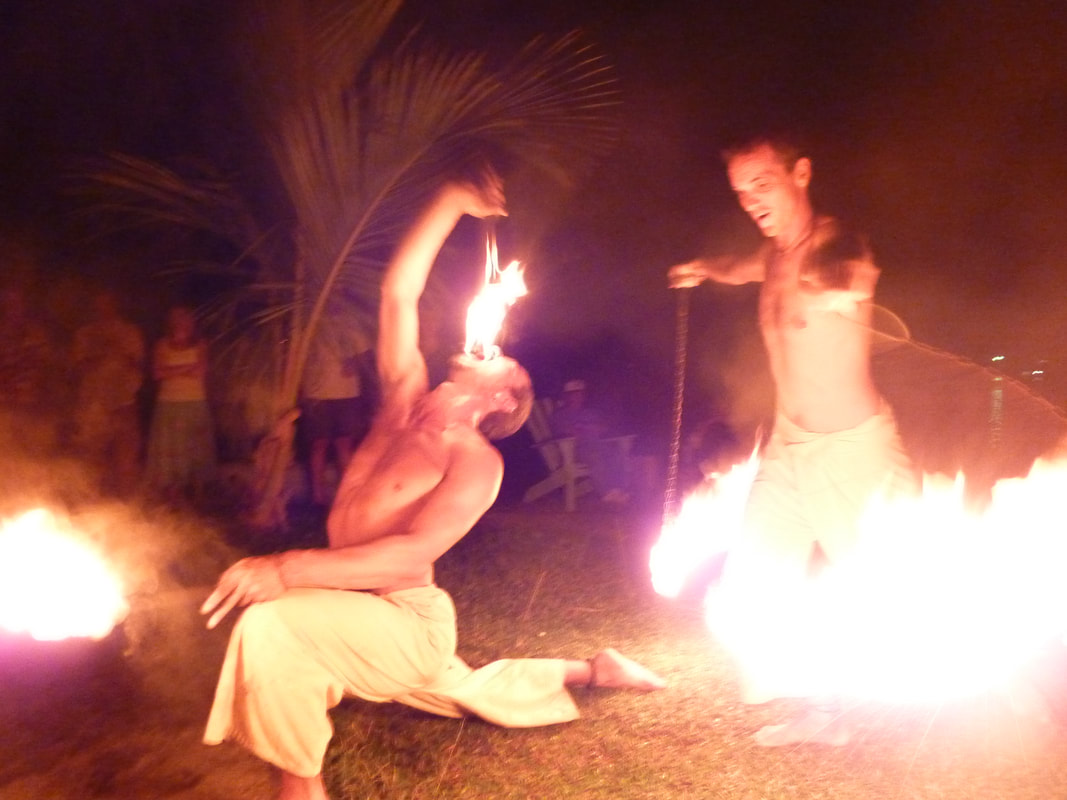
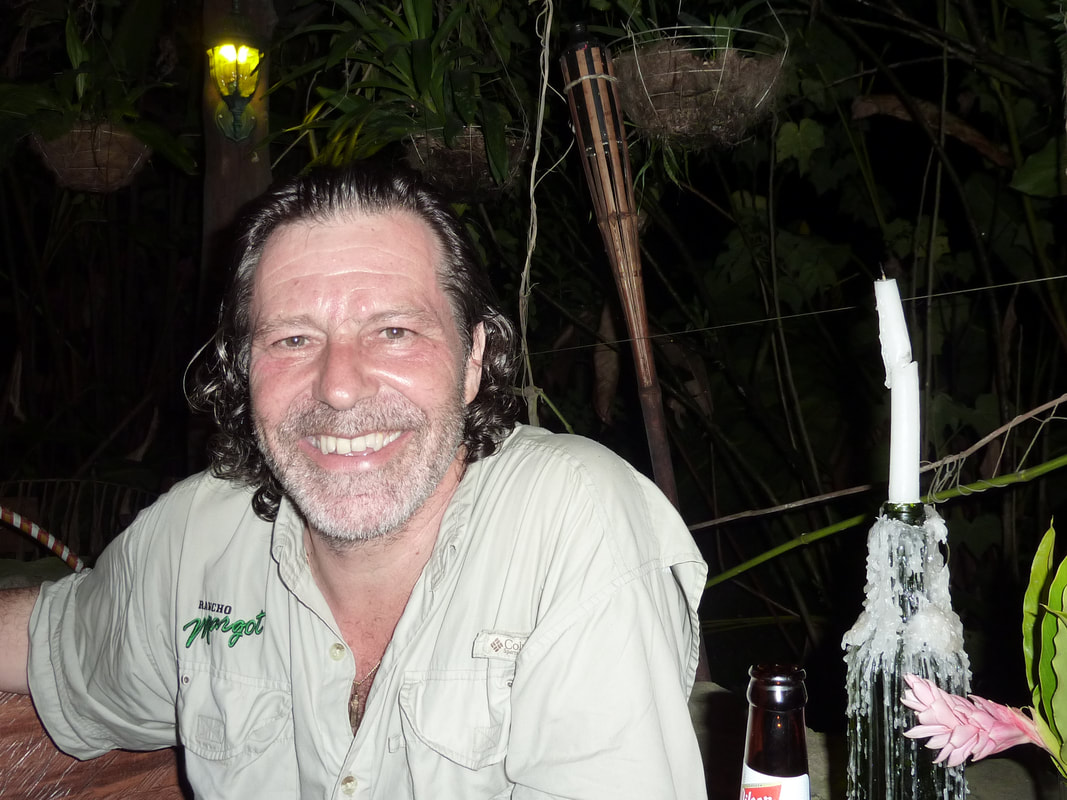
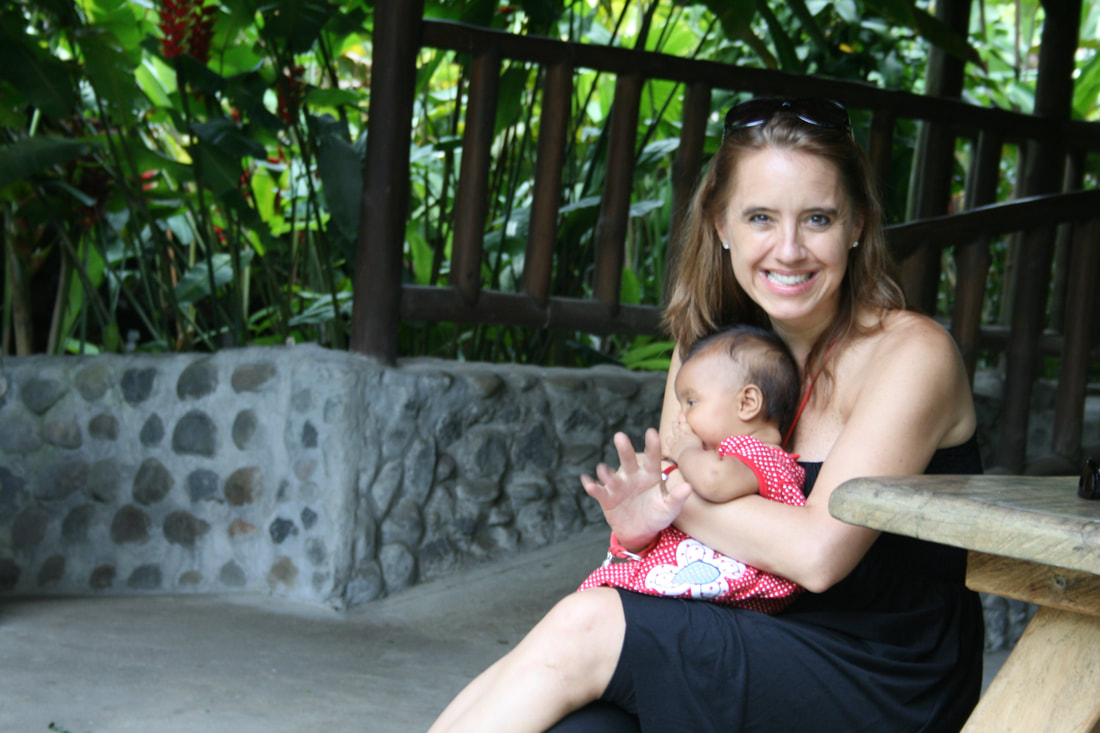
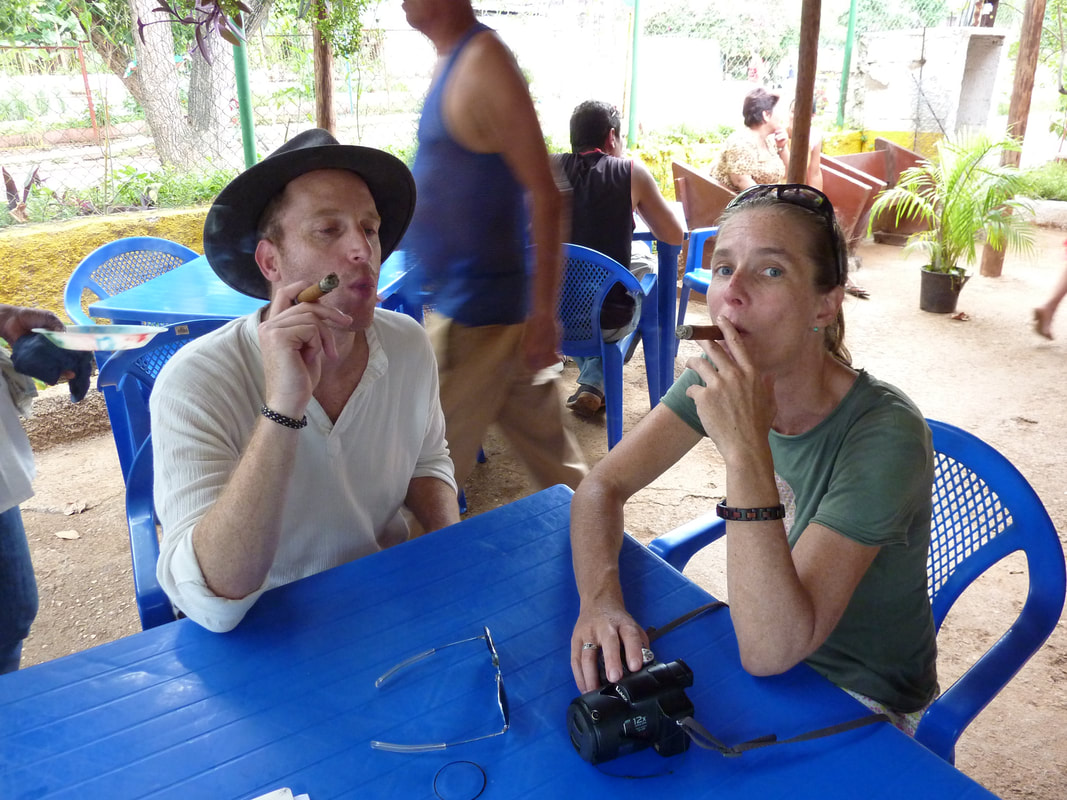
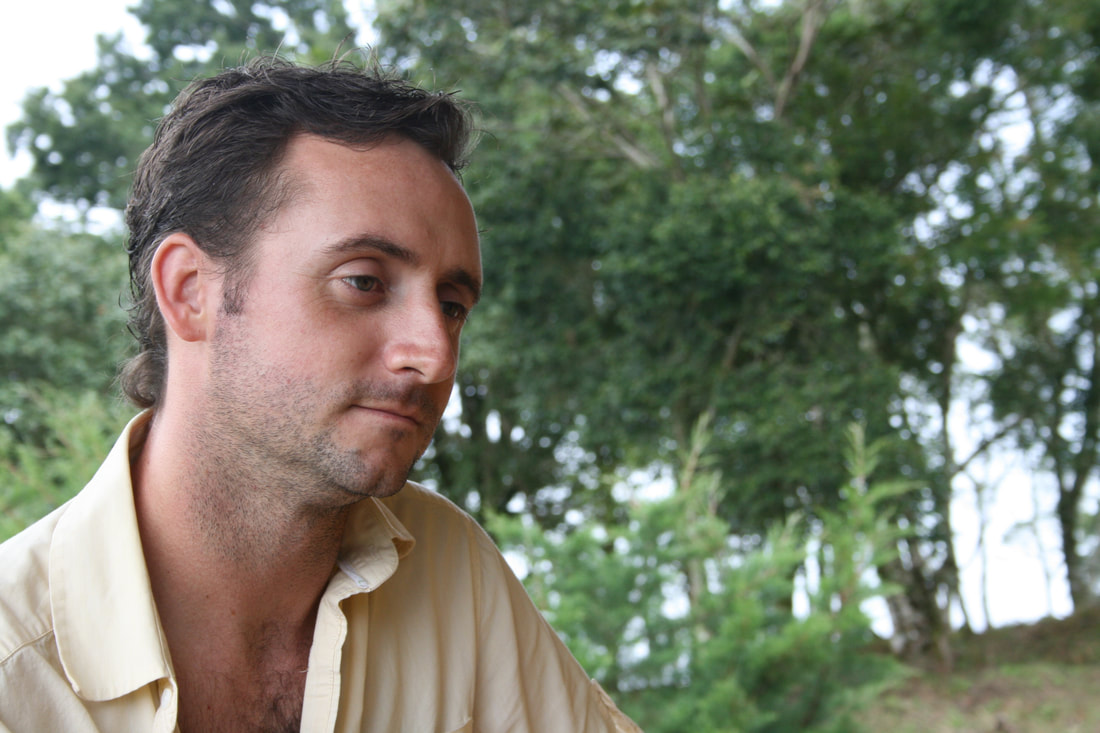
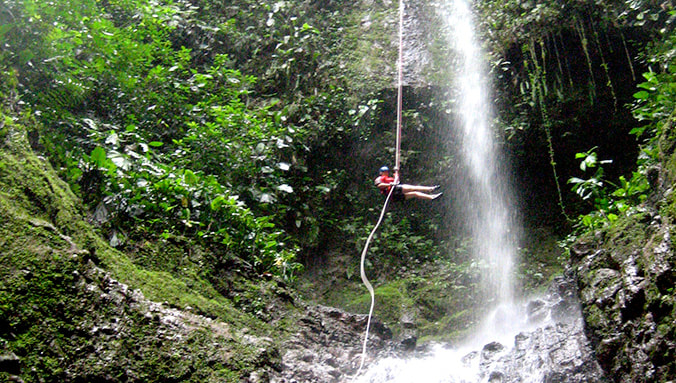
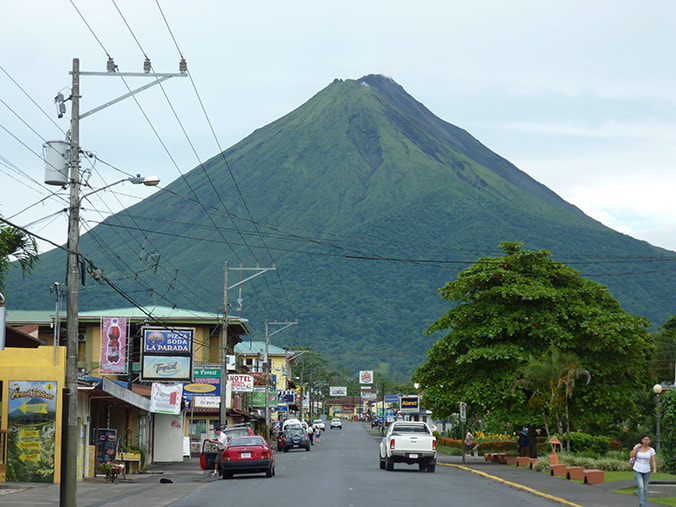
 RSS Feed
RSS Feed

